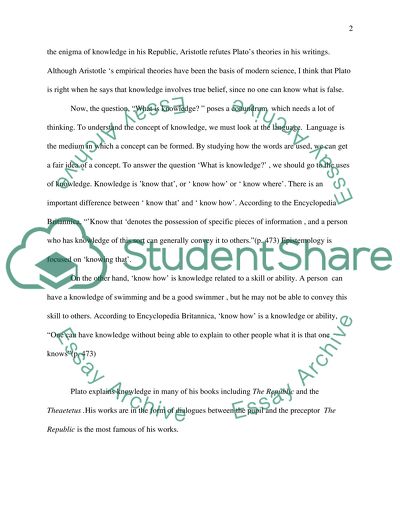Cite this document
(“The Nature of Knowledge Essay Example | Topics and Well Written Essays - 1500 words”, n.d.)
The Nature of Knowledge Essay Example | Topics and Well Written Essays - 1500 words. Retrieved from https://studentshare.org/miscellaneous/1528065-the-nature-of-knowledge
The Nature of Knowledge Essay Example | Topics and Well Written Essays - 1500 words. Retrieved from https://studentshare.org/miscellaneous/1528065-the-nature-of-knowledge
(The Nature of Knowledge Essay Example | Topics and Well Written Essays - 1500 Words)
The Nature of Knowledge Essay Example | Topics and Well Written Essays - 1500 Words. https://studentshare.org/miscellaneous/1528065-the-nature-of-knowledge.
The Nature of Knowledge Essay Example | Topics and Well Written Essays - 1500 Words. https://studentshare.org/miscellaneous/1528065-the-nature-of-knowledge.
“The Nature of Knowledge Essay Example | Topics and Well Written Essays - 1500 Words”, n.d. https://studentshare.org/miscellaneous/1528065-the-nature-of-knowledge.


